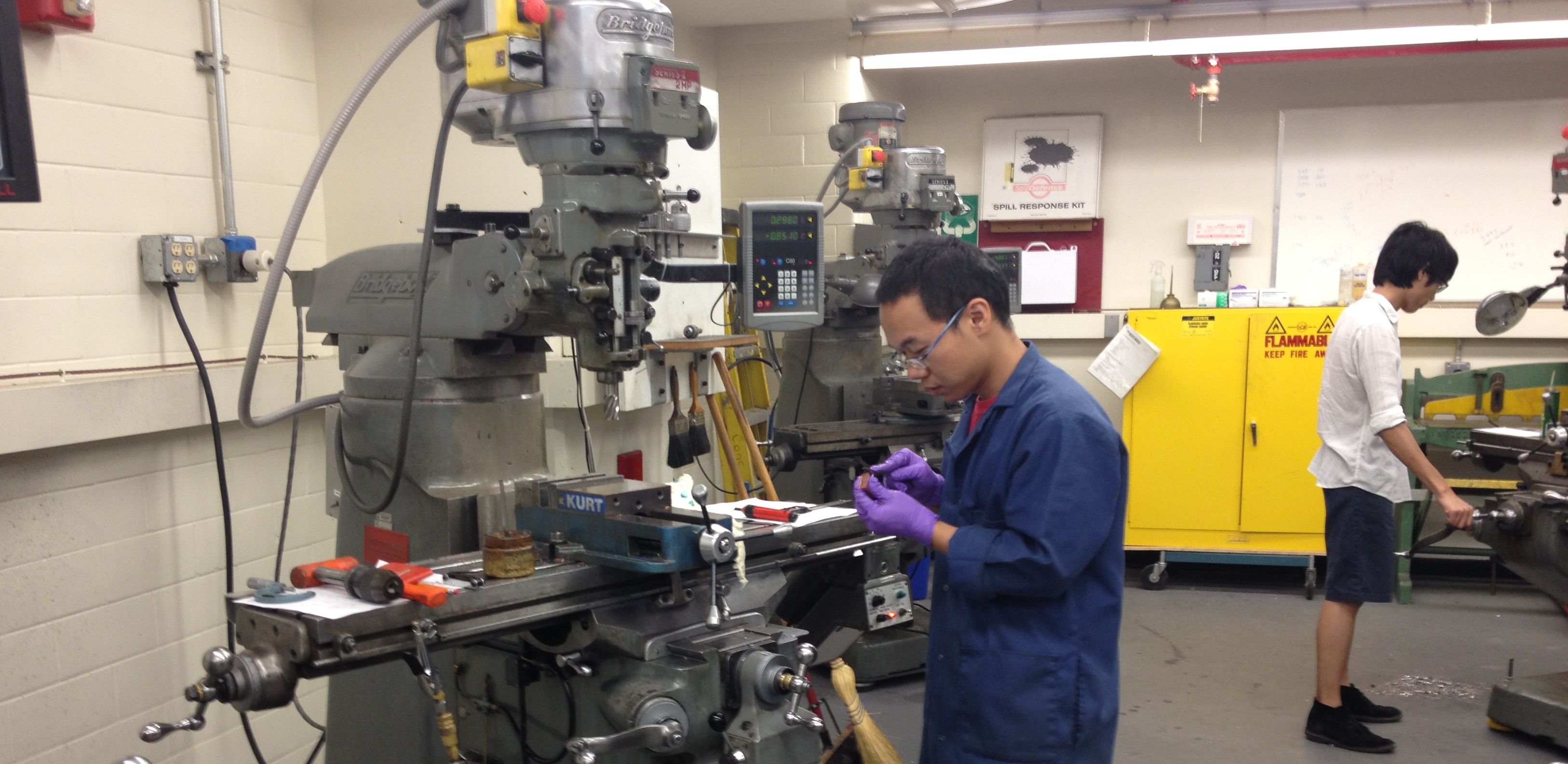The Physics Department provides a number of facilities and services for use by faculty, staff, and students within the Department. Many facilities are also available for use by other University-affilliated students and staff. The Laboratory Supplies office, located in PMA 8.306 (471-5352), provides supplies for laboratory classes, as well as providing more general office supplies for faculty and administrators within the Department.
Modern facilities for graduate study and research include:
- Large-scale cryogenic laboratory;
- Synthesis and strong magnetic field equipment;
- Nuclear magnetic and electron paramagnetic resonance laboratories;
- Extensive facilities for tunneling and force microscopy and nanostructure characterization,
- SQUID magnetometry, and electron spectroscopy;
- Well-equipped labs in optical spectroscopy, quantum optics, femtosecond spectroscopy and diagnostics,
- Electron-atom and surface scattering and high-intensity laser science;
- Facilities for turbulent flow and nonlinear dynamics experiments.
In addition, we use several external facilities. Plasma physics experiments are conducted at the major national tokamaks in Boston and San Diego. Experiments in high-energy heavy ion nuclear and particle physics are conducted at large accelerator facilities such as Brookhaven National Laboratory (New York), Fermi National Accelerator Laboratory (Illinois), and Stanford Linear Accelerator Center. Further information on facilities related to a specific field of interest can be found by visiting the appropriate research group section.






